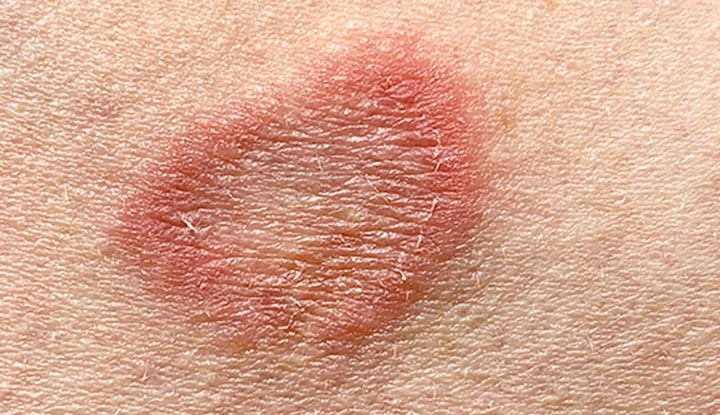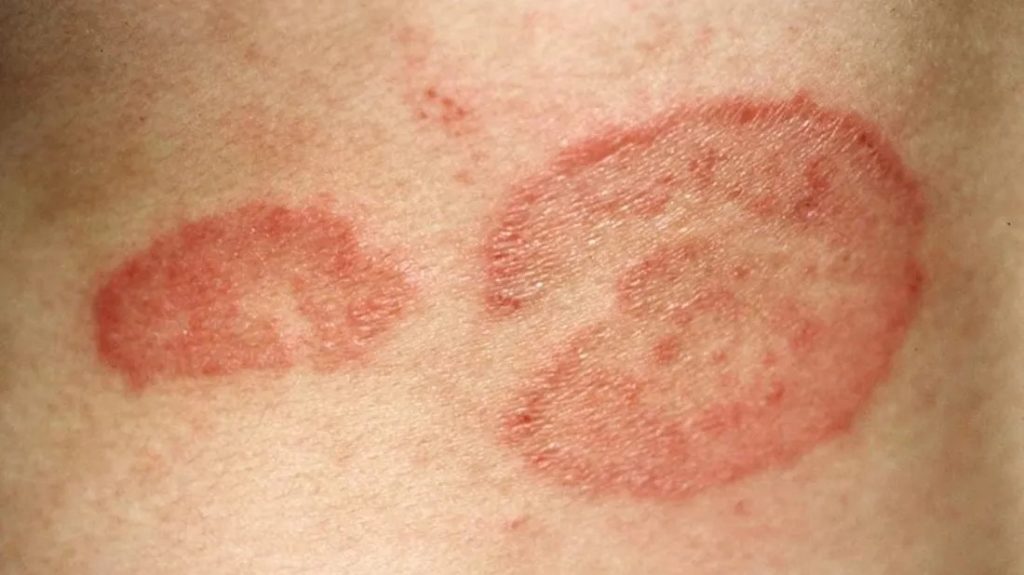Fungal Infection (Ringworm Infection)

Fungal Infection (Ringworm Infection) Treatment in New Delhi – Dr. Mahajan’s Skin to Bone Clinic
Expert Care for Fungal Infections by Dermatologist Dr. Shruti Patil
Fungal infections, commonly known as ringworm infections (tinea), are a prevalent skin concern caused by dermatophytes—fungi that thrive in warm, moist areas. These infections can cause discomfort, itching, and redness, often affecting the skin, scalp, nails, or feet. At Dr. Mahajan’s Skin to Bone Clinic in New Delhi, Dr. Shruti Patil, a skilled dermatologist, provides comprehensive care for fungal infections with accurate diagnosis and advanced treatment options to ensure effective results.
What is a Fungal (Ringworm) Infection?
Fungal infections, or tinea, are superficial skin conditions caused by fungal overgrowth. Despite being called “ringworm,” the condition is not caused by worms. Instead, the name refers to the ring-like appearance of the rash.
Types of Fungal Infections:
Tinea Corporis (Body Ringworm): Affects the body’s skin, causing circular, itchy rashes.
Tinea Pedis (Athlete’s Foot): Affects the feet, causing scaling, redness, and itching.
Tinea Cruris (Jock Itch): Occurs in the groin area.
Tinea Capitis: Affects the scalp, often resulting in hair loss in affected areas.
Tinea Unguium (Onychomycosis): Affects the nails, causing thickening, discoloration, or crumbling.
Types of Fungal Infections:
Tinea Corporis (Body Ringworm): Affects the body’s skin, causing circular, itchy rashes.
Tinea Pedis (Athlete’s Foot): Affects the feet, causing scaling, redness, and itching.
Tinea Cruris (Jock Itch): Occurs in the groin area.
Tinea Capitis: Affects the scalp, often resulting in hair loss in affected areas.
Tinea Unguium (Onychomycosis): Affects the nails, causing thickening, discoloration, or crumbling.
Symptoms of Fungal Infections
1. Itchy, red, or scaly patches.
2. Circular rashes with raised edges.
3. Cracked or peeling skin.
4. Thickened, discolored nails in nail infections.
5. Hair thinning or loss in scalp infections.
Causes of Fungal Infections
1. Warm, humid environments.
2. Poor hygiene or prolonged wetness of skin.
3. Sharing personal items like towels or shoes.
4. Weakened immune systems.
5. Tight, non-breathable clothing.
Advanced Fungal Infection Treatment at Dr. Mahajan’s Skin to Bone Clinic
At Dr. Mahajan’s Skin to Bone Clinic, we prioritize a patient-centric approach to effectively treat fungal infections and prevent recurrences:
1. Comprehensive Diagnosis
Accurate identification of the infection type using skin scrapings, culture tests, or clinical evaluation.
Customized treatment plans based on the severity and location of the infection.
2. Topical Antifungal Medications
Prescribed creams, ointments, or lotions to eliminate the fungal growth on the skin’s surface.
Rapid relief from itching and irritation.
3. Oral Antifungal Therapy
For severe or stubborn infections, oral antifungal medications may be recommended.
Effective in treating deeper infections, including nail or scalp involvement.
4. Lifestyle Modifications and Prevention
Expert advice on maintaining hygiene, wearing breathable clothing, and avoiding potential sources of infection.
5. Advanced Solutions for Persistent Cases
Innovative treatments like laser therapy for fungal nail infections.
Immune-boosting recommendations for recurring fungal infections.
1. Itchy, red, or scaly patches.
2. Circular rashes with raised edges.
3. Cracked or peeling skin.
4. Thickened, discolored nails in nail infections.
5. Hair thinning or loss in scalp infections.
Causes of Fungal Infections
1. Warm, humid environments.
2. Poor hygiene or prolonged wetness of skin.
3. Sharing personal items like towels or shoes.
4. Weakened immune systems.
5. Tight, non-breathable clothing.
Advanced Fungal Infection Treatment at Dr. Mahajan’s Skin to Bone Clinic
At Dr. Mahajan’s Skin to Bone Clinic, we prioritize a patient-centric approach to effectively treat fungal infections and prevent recurrences:
1. Comprehensive Diagnosis
Accurate identification of the infection type using skin scrapings, culture tests, or clinical evaluation.
Customized treatment plans based on the severity and location of the infection.
2. Topical Antifungal Medications
Prescribed creams, ointments, or lotions to eliminate the fungal growth on the skin’s surface.
Rapid relief from itching and irritation.
3. Oral Antifungal Therapy
For severe or stubborn infections, oral antifungal medications may be recommended.
Effective in treating deeper infections, including nail or scalp involvement.
4. Lifestyle Modifications and Prevention
Expert advice on maintaining hygiene, wearing breathable clothing, and avoiding potential sources of infection.
5. Advanced Solutions for Persistent Cases
Innovative treatments like laser therapy for fungal nail infections.
Immune-boosting recommendations for recurring fungal infections.
Why Choose Dr. Mahajan’s Skin to Bone Clinic for Fungal Infection Treatment?
Experienced Dermatologist: Under the guidance of Dr. Shruti Patil, we provide tailored care for all types of fungal infections.
State-of-the-Art Facility: Equipped with the latest diagnostic and treatment technologies.
Comprehensive Care: From acute to chronic fungal infections, we ensure lasting relief.
Patient-Focused Approach: Emphasis on patient education to prevent future occurrences.
Convenient Location: Centrally located in New Delhi, making it easy to access quality dermatological care.
Preventing Fungal Infections
Keep skin dry and clean, especially in folds and areas prone to sweating.
Avoid sharing personal items like towels, shoes, and combs.
Wear loose, breathable fabrics to minimize moisture buildup.
Always dry feet and other prone areas after bathing or swimming.
Use antifungal powders or sprays in shoes if prone to infections.
Frequently Asked Questions
1. Can fungal infections spread from person to person?
Yes, fungal infections are contagious and can spread through direct skin contact or shared personal items.
2. How long does it take to treat a fungal infection?
Treatment duration varies depending on the infection type and severity. Topical treatments may take weeks, while oral medications for nails or scalp may require months.
3. Can fungal infections recur?
Yes, especially if preventive measures are not taken. Proper hygiene and follow-up care are essential to prevent recurrence.
4. Are over-the-counter antifungals effective?
Mild infections can be managed with OTC treatments, but persistent or severe infections require professional diagnosis and prescription medications.
State-of-the-Art Facility: Equipped with the latest diagnostic and treatment technologies.
Comprehensive Care: From acute to chronic fungal infections, we ensure lasting relief.
Patient-Focused Approach: Emphasis on patient education to prevent future occurrences.
Convenient Location: Centrally located in New Delhi, making it easy to access quality dermatological care.
Preventing Fungal Infections
Keep skin dry and clean, especially in folds and areas prone to sweating.
Avoid sharing personal items like towels, shoes, and combs.
Wear loose, breathable fabrics to minimize moisture buildup.
Always dry feet and other prone areas after bathing or swimming.
Use antifungal powders or sprays in shoes if prone to infections.
Frequently Asked Questions
1. Can fungal infections spread from person to person?
Yes, fungal infections are contagious and can spread through direct skin contact or shared personal items.
2. How long does it take to treat a fungal infection?
Treatment duration varies depending on the infection type and severity. Topical treatments may take weeks, while oral medications for nails or scalp may require months.
3. Can fungal infections recur?
Yes, especially if preventive measures are not taken. Proper hygiene and follow-up care are essential to prevent recurrence.
4. Are over-the-counter antifungals effective?
Mild infections can be managed with OTC treatments, but persistent or severe infections require professional diagnosis and prescription medications.

